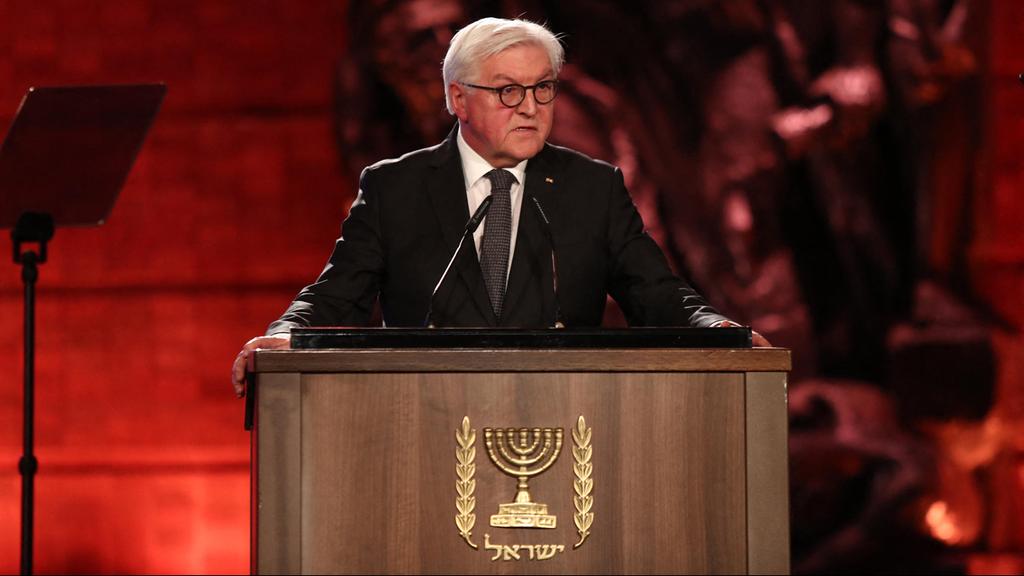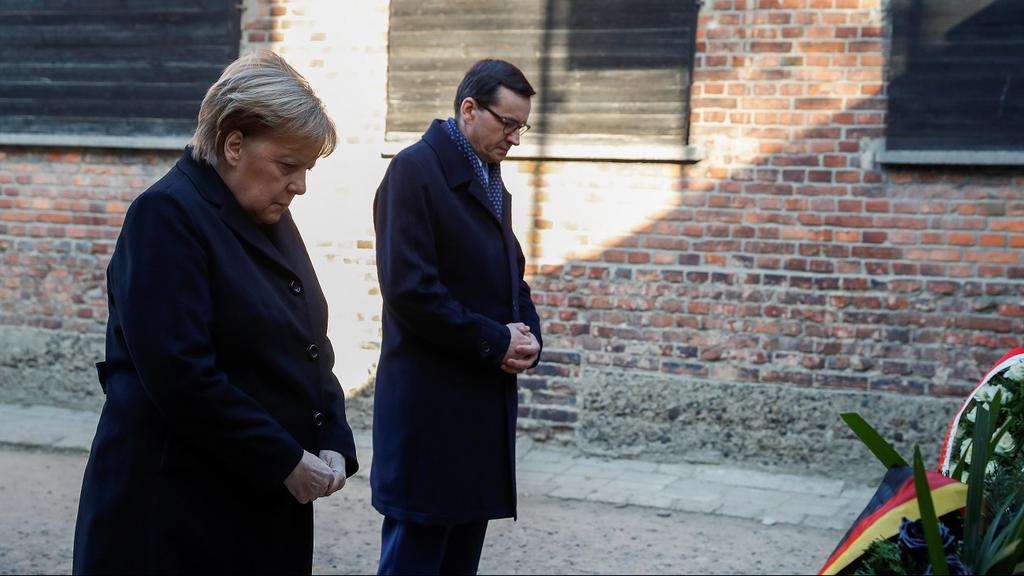Getting your Trinity Audio player ready...
I had the privilege of participating in two important recent events in connected to memory and the lessons of the Shoah.
First, on January 20, on the 78th anniversary of the infamous Wannsee Conference, I was part of a Simon Wiesenthal Center delegation that met with Pope Francis. It was there in 1942, in a suburb of Berlin, where 15 high-ranking Nazi officials, among them people with doctorate degrees, convened to agree on the fastest and most efficient way to murder 11 million European Jews.
2 View gallery


German President Frank-Walter Steinmeier speaking at the International Holocaust Forum at Yad Vashem
(Photo: MCT)
Pope Francis declared, “If we lose our memory, we destroy our future.” Then, on the eve of the 75th anniversary of the liberation of the Auschwitz-Birkenau death camp in Poland, the pontiff urged the faithful to declare in their hearts: Never Again!
There were many powerful declarations at a historic gathering of over 40 heads of state, kings, and diplomats at Jerusalem’s Yad Vashem that included a powerful admonition by Rabbi Yisrael Lau, former chief rabbi of Israel, who was sent to a concentration camp at the age of 7.
There was Prince Charles’ moving description of the impact that a Holocaust survivor had on him personally. There was the dramatic entrance into the hall of Russian President Vladimir Putin and the laying of wreaths honoring the 6 million by the kings of Spain, Belgium and the Netherlands.
But for many, the most powerful moments were delivered by U.S. Vice President Mike Pence and German President Frank-Walter Steinmeier. They each recited the Shehecheyanu blessing in Hebrew, a gesture of affirmation of how far the Jewish state had come since its miraculous founding a mere three years after Auschwitz.
To his credit the German president did not sugarcoat the crisis of anti-Semitism infecting his nation, flat-out admitting that Germans had not learned the lesson of the Holocaust. Heiko Maas, Germany’s foreign minister, warned that many German Jews were considering leaving if anti-Semitic attacks continued.
2 View gallery


German Chancellor Angela Merkel and Polish Prime Minister Mateusz Morawiecki at Auschwitz
(Photo: Reuters)
Such honesty is welcome but these words are fated to become self-fulfilling prophecies unless real action is taken. Here are a few concrete actions that Berlin can take to begin to turn the tide against anti-Jewish hate:
Herr Steinmeier previously was the main German negotiator for the nuclear deal with Iran. As president, he should directly confront the Iranian regime for making Holocaust denial part of its statecraft. Every senior Iranian official and delegation coming to Berlin should be openly challenged by German officials at every opportunity.
Declare Hezbollah – and not only its “military wing” – a terrorist organization. This will rob it of a significant fundraising base in Europe and stop its ability to promote Jew-hatred among Arab immigrants.
Link all future German funding of UN Relief and Works Agency schools to an independent review of the current anti-peace curriculum.
Step up policing, prosecutions and sentences against perpetrators of anti-Semitic hate crimes – whatever the source – whether neo-Nazi or far-left or Islamist.
Insist on Holocaust education in all schools. Parents who don’t want their children to be exposed to the truth should not be able to harass teachers to stop. There must also be real consequences for bullies intimidating or threatening Jewish students.
President Frank-Walter Steinmeier, Foreign Minister Heiko Maas, and Chancellor Angela Merkel know full well that these steps need to be taken. If they don’t find the political will to fully implement these policies, then no amount of pious posturing will convince Jews that they have a viable future in Germany.
Article written by Rabbi Abraham Cooper, reprinted with permission from The Media Line

